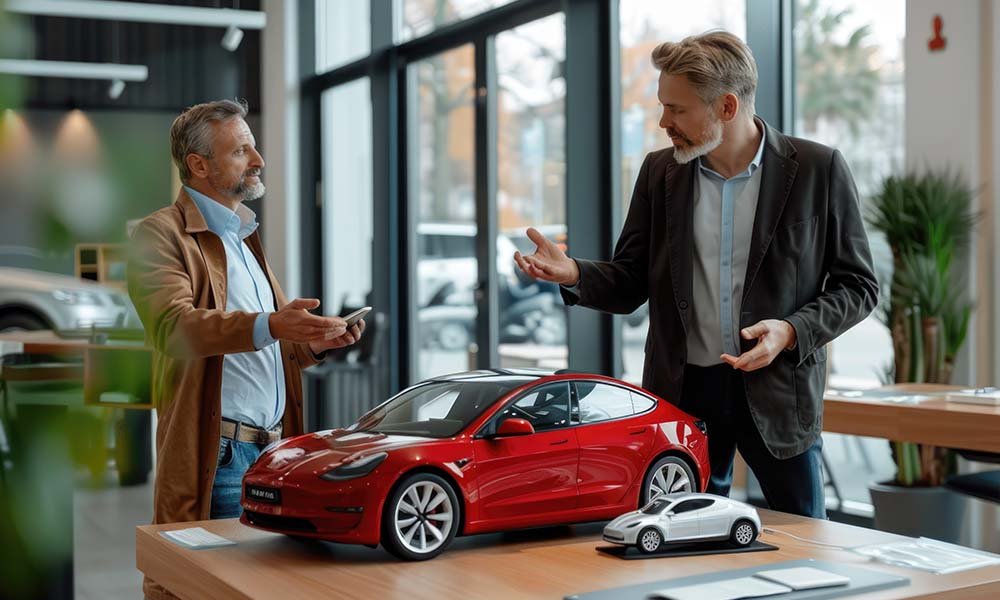
When it comes to acquiring a vehicle, the choice between leasing and buying can significantly impact your finances, lifestyle, and long-term goals. Both options have their advantages and drawbacks, and the right choice depends on your personal preferences, driving habits, and budget. This article explores the key differences between car leasing and buying to help you make an informed decision.
Understanding Car Leasing
Car leasing involves renting a vehicle for a specified period, usually 24 to 36 months. During this time, you pay monthly installments based on the car’s depreciation, interest, and fees. At the end of the lease, you can return the car, buy it for a pre-agreed price, or lease a new vehicle.
Advantages of Leasing
- Lower Monthly Payments: Leasing generally offers lower monthly payments compared to buying, as you only pay for the car’s depreciation during the lease term.
- Access to Newer Models: Leasing allows you to drive the latest models with updated features and technology every few years.
- Minimal Maintenance Costs: Most lease terms align with the car’s warranty period, reducing the cost of major repairs.
- No Resale Worries: At the end of the lease, you simply return the car to the dealer, avoiding the hassle of selling a used vehicle.
Disadvantages of Leasing
- Mileage Limits: Lease agreements typically impose mileage caps, often ranging from 10,000 to 15,000 miles per year. Exceeding these limits can lead to additional charges.
- No Ownership: Leasing doesn’t build equity; you won’t own the car at the end of the lease term.
- Wear-and-Tear Fees: Excessive wear and tear may result in extra costs when returning the car.
- Continuous Payments: Leasing requires ongoing payments, as you never reach a point where the car is paid off.
Understanding Car Buying

Buying a car involves either paying the full price upfront or financing the purchase through a loan. Once the loan is paid off, the car is yours to keep or sell.
Advantages of Buying
- Ownership Equity: Buying builds equity, and you own the car outright once the loan is paid off.
- No Mileage Restrictions: Unlike leasing, owning a car means you can drive as much as you want without worrying about mileage penalties.
- Customizability: Owners can modify their cars with no restrictions, adding personal touches or enhancing performance.
- Long-Term Savings: While monthly payments may be higher, buying a car can be more cost-effective in the long run, especially if you keep the vehicle for many years.
Disadvantages of Buying
- Higher Initial Costs: Buying often requires a larger down payment and higher monthly installments compared to leasing.
- Depreciation: Cars lose value over time, and the resale value may not always align with expectations.
- Maintenance Expenses: After the warranty expires, owners are responsible for maintenance and repair costs.
- Selling Challenges: Selling or trading in a used car can be time-consuming and may not yield the desired value.
Key Factors to Consider
When deciding between leasing and buying, consider the following factors:
Budget
If you have a limited budget and prefer lower monthly payments, leasing may be the better choice. However, if you can afford higher payments and want to build equity, buying is more advantageous in the long term.
Driving Habits
Leasing is ideal for individuals who drive within mileage limits and maintain their vehicles well. For those with high annual mileage or a tendency to keep vehicles for years, buying is often the better option.
Lifestyle and Preferences
Leasing is appealing for those who enjoy driving new cars and experiencing the latest technology. On the other hand, buying suits those who prefer long-term ownership and customizability.
Leasing vs. Buying: A Side-by-Side Comparison
| Feature | Leasing | Buying |
| Monthly Payments | Lower | Higher |
| Ownership | No | Yes |
| Mileage Limits | Yes | No |
| Customization | Restricted | Unlimited |
| Long-Term Costs | Higher | Lower |
| Resale Hassles | None | Yes |
Conclusion
The decision between leasing and buying ultimately depends on your financial situation, driving needs, and personal preferences. Leasing is ideal for those who value lower payments and frequent car upgrades, while buying offers long-term savings and ownership benefits. By evaluating your priorities and considering the pros and cons of each option, you can make the choice that best aligns with your lifestyle.




